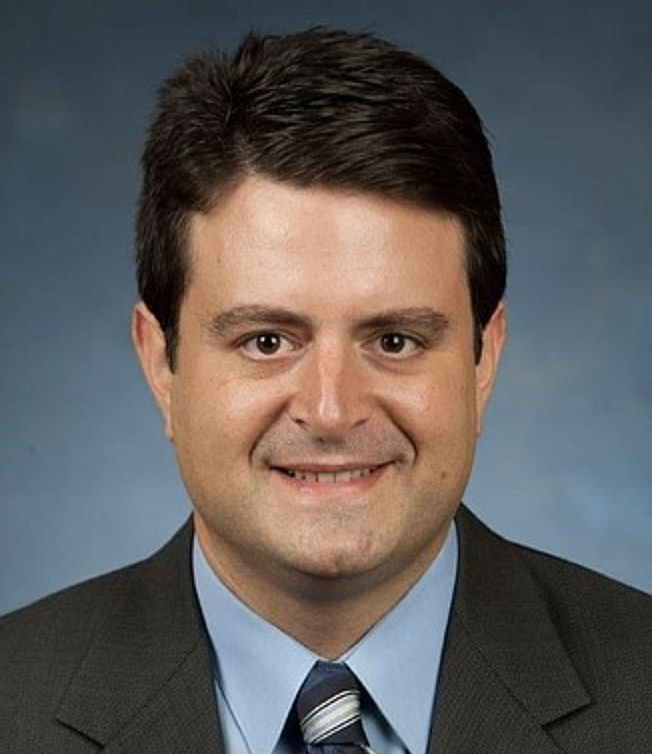
The former lead attorney for the city of Jacksonville testified March 5 that a JEA incentive plan at the center of the criminal trial of two former JEA executives amounted to creating “phantom, faux stock” in the public utility and selling it to the utility’s executives and staff.
Jason Gabriel, who served seven years as the city general counsel, told jurors in the trial of Aaron Zahn and Ryan Wannemacher that his concerns about the incentive plan were initially limited to its legal conformance with the city charter and state law.
That was before he learned that the plan could yield “gargantuan” payouts that compounded his concerns, he told jurors. He said the bonuses, which have been estimated at potentially more than $300 million, “would be so preposterous that as a matter of law, fact, policy and anything else, that would be out of the bounds of anything the government has ever done.”

Gabriel testified that when the JEA board approved the plan in July 2019, he believed it would pay no more than $4 million in incentives across all of the plan’s participants, who could have numbered more than 2,000. Gabriel based that figure on materials that had been presented to a JEA board compensation committee and made available to his office.
In November 2019, he said, he learned during a City Council committee hearing that the Council Auditor’s Office had examined the plan and estimated that it could generate more than $300 million through a sale of the utility. JEA was progressing toward a sale at that time following a separate board vote in July 2019 to issue an invitation to negotiate with potential buyers.
Only days before, he testified, he was in an in-person meeting with Zahn in which Gabriel asked if anyone had done financial projections to determine the size of the payouts.
“It was quiet. The only person who responded was Mr. Zahn, and he just said, ‘It’s nominal’ and sort of downplayed it,” Gabriel said.
“And in your mind, what did nominal mean,” asked Assistant U.S. attorney Tysen Duva.
“Three to four million dollars,” Gabriel responded.
Prosecutors allege that Zahn and Wannemacher plotted to create the incentive plan knowing it would pay them tens of millions of dollars if JEA sold. The government claims the two defendants shrouded the value of the incentives to board members and simultaneously schemed to put JEA on a path toward a sale by falsely portraying the utility as a failing operation that needed to be privatized.
Defense attorneys for Zahn and Wannemacher say Zahn, who came to JEA from the private sector with no experience in a public utility, offered the plan and suggested exploring privatization in response because he was brought aboard to present new and innovative ideas.
Contrary to the characterizations of the government, attorneys for Zahn and Wannemacher say they operated transparently and sought outside review of their plans – including from the Office of General Counsel.
Gabriel testified that after the board approved the incentive plan, he and his office raised a growing number of questions with JEA over concerns that the plan was not in conformance with the city charter and other laws. Gabriel said JEA officials offered inadequate and shifting responses.
Days before the City Council Auditor issued the report about the potential payouts, Zahn announced that the JEA was indefinitely postponing implementation of the plan.
The government presented an exchange of text messages in which Zahn, after announcing the postponement, continued to communicate with Gabriel about the plan “should we decide to pick it up in the future.” Gabriel responded to the text by saying “the plan as currently structured does have outstanding issues” legally.
In closing his direct examination of Gabriel, Duva asked him, “Would you ever approve of public employers devising a plan to personally profit off of the sale of a public asset?”
“Absolutely not,” Gabriel said.
Under cross-examination by Zahn attorney Eddie Suarez, Gabriel said that Zahn’s comment about the payouts being “nominal” may have been in relation to the utility selling for $3 billion. The calculations of the incentives being worth hundreds of millions of dollars were based on a sale at a much higher price.
In other testimony March 5, former city lawyer Lynne Rhode said she also was not aware of the magnitude of the payouts when the board OK’d the plan in July 2019. Rhode was assigned to JEA in 2019 as a member of the Office of General Counsel.
She said the mathematical formula that determined the payouts was beyond the scope of her legal review of the plan before it went before the board. She said she became aware of questions over the size of the payouts after the vote.
Under cross-examination by Suarez, Rhode testified that Zahn never asked her to do anything that she considered unethical or that made her uncomfortable.
Zahn and Wannemacher are charged with conspiracy and wire fraud, which carry combined sentences of 25 years.
The trial is scheduled to resume March 6 at the Bryan Simpson U.S. Courthouse, with ongoing cross-examination of Gabriel.